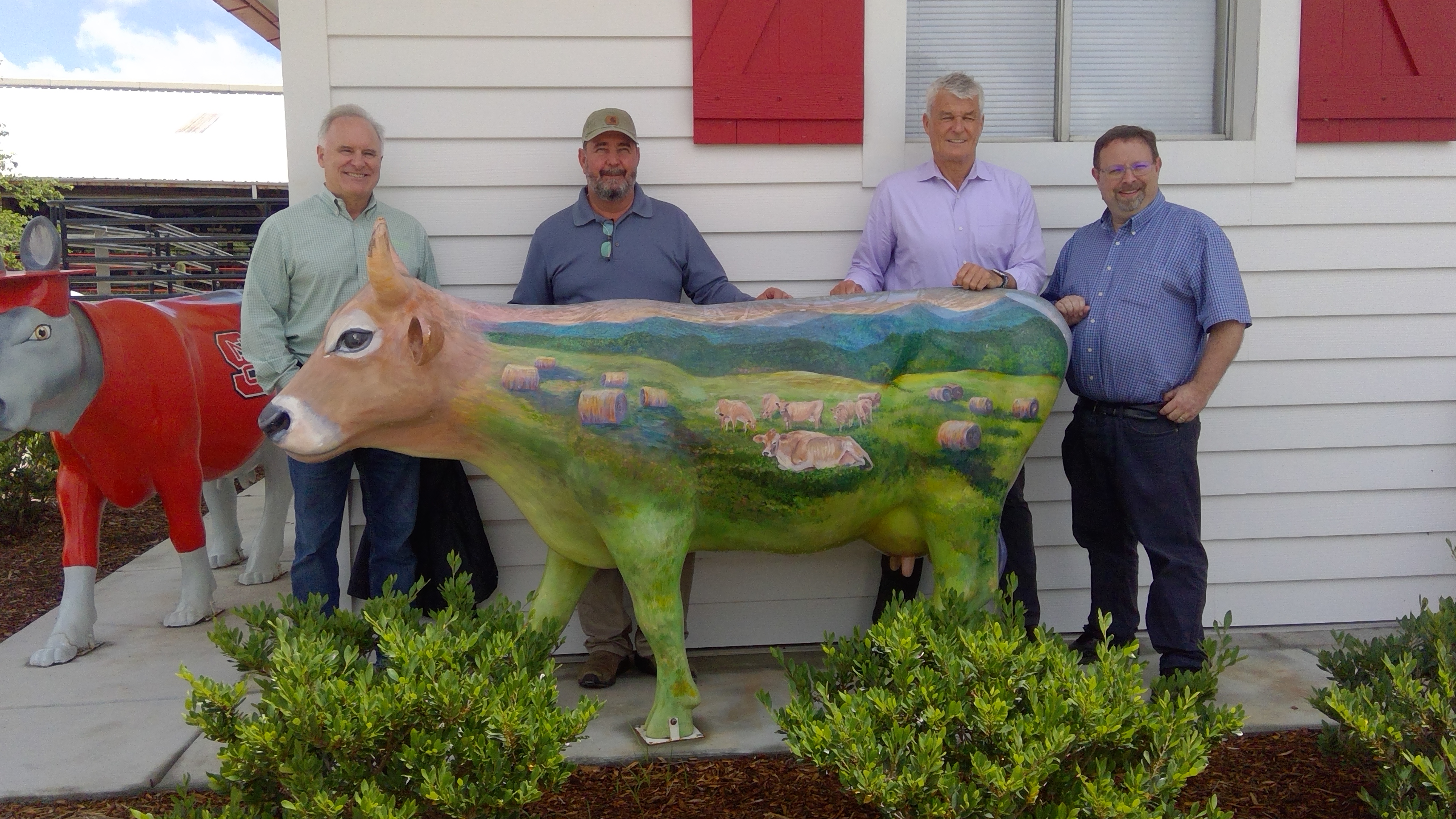What is hygiene scoring? What is a sound cow versus a lame cow? Does your farm work with a vet? These are just a few questions Maryland & Virginia customers are asking. Increasingly, our customers are more attentive to how member farms are evaluated in the areas of animal care, environmental sustainability and employee relations.
To help them gain a better appreciation of the FARM program, Lake Wheeler Dairy in Raleigh, North Carolina welcomed a group of our customers during a FARM Animal Care Evaluation in early May.
Lake Wheeler Dairy is known for its Howling Cow Dairy, which processes its own ice cream and fluid milk. The farm consists of 170 mostly Holsteins and Jerseys and its part-time help is made up of nearly all students from NC State’s various programs. The dairy is part of the research farm that encompasses 1,500 acres just outside of Raleigh.
Lake Wheeler Dairy manager Mike Veach and Maryland & Virginia field representative Carl Privett were on hand for the tour, along with FARM evaluator Lauren Mosemann, Chief Operating Officer Brian Linney, and several customer representatives. One of the customers walked the barn with Lauren, starting in the parlor, and followed the scoring process, eager to see how the cows were individually scored. Customers learned about routine animal care practices, key elements of the FARM pro-gram and how the animals are evaluated.
“It’s clear they were appreciative of being able to go through the FARM evaluation. Customers want to learn more about on-farm practices. They want to know how things work, not just the evaluation but animal handling procedures,” Brian Linney said.
“There was a time when everyone had a connection to a farm but that’s not the case anymore .As a co-op we have this opportunity to show our customers what makes us special, what top quality looks like, and what it takes to achieve it,” Brian added.
Photos: A customer discusses the program with Lauren Mosemann (top) and poses with Brian Linney (middle); two customers who took part in the tour (bottom).


